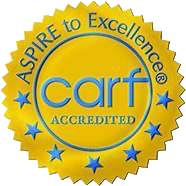This model goes beyond surface-level compliance and focuses on sustainable behavioral change, value transformation, and emotional healing for the entire household.
FCT is a comprehensive, trauma-informed intervention delivered through individual and family sessions held in the home. It is designed to:
Rather than treating symptoms in isolation, FCT works to restructure unhealthy family dynamics, integrating new, functional behaviors into the family’s core value system.

• The clinician builds rapport and trust with the family
• A Family Centered Evaluation is conducted to identify goals and areas of need
• The clinician helps the family recognize and interrupt ineffective patterns
• Real-time guidance is provided as families practice new behaviors
• Trauma narratives may be used to help individuals process emotional blocks
• Families begin to internalize new behaviors
• Clinicians challenge the motivation behind changes to ensure value alignment
• Progress becomes self-sustaining and intentional
• Families prepare for independence
• A clear, actionable plan is created for moving forward without clinician support
FCT is appropriate for families who:
Are you working with a family that could benefit from FCT services? Let’s talk.










One Source Wellness Works is a CARF-accredited behavioral health provider offering compassionate, community-based services including therapy, psychiatric rehabilitation, and family-centered treatment. We are committed to helping individuals and families achieve lasting wellness and independence through personalized care.